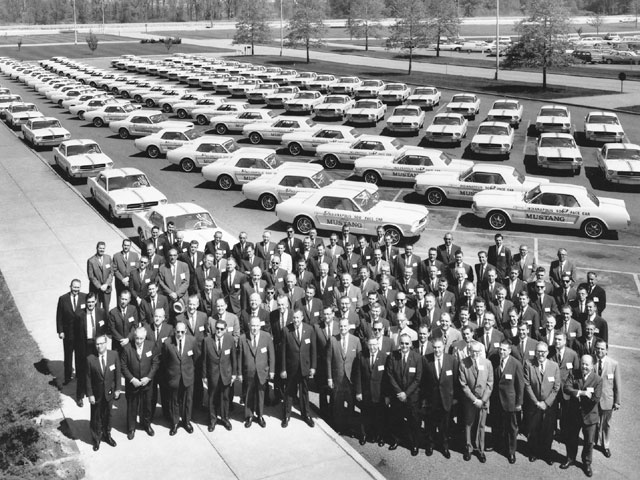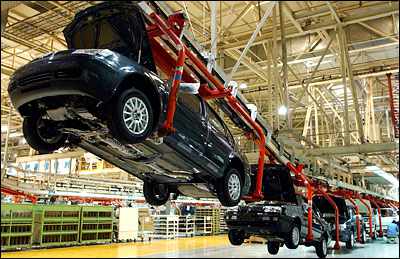by Lucas Elke
In 2008, when the Canadian and United States governments announced a $17.4 billion USD bailout plan for their respective auto sectors, many people were furious. Why would the government provide handouts to help save companies who simply produce cars? Then, when the governments responded to the criticism their answer was annoyingly simple: “These companies are too big and too important to lose”. Well, that simple response got me thinking (albeit three years late) – “Just how big and important are these auto manufacturers?” After a bit of research, I found out.
The answer: Absolutely huge! If ExxonMobil, Royal Dutch Shell, and BP (the three largest oil companies in the world) decided to join forces in sucking the world dry, and kept all of their employees in the process, they would have 30,000 fewer employees than Ford. In Ontario, the heartland of Canadian auto manufacturing, the industry is one of the province’s top employers. With 400,000 employed workers, there are two auto industry employees for every one Leafs fan. The economic output of, dare I say it, “The Greatest Industry on Earth” is equally as staggering. As real economic buffs put it, the contribution to U.S. GDP output by the auto industry is 3.6%. Three point six percent of anything doesn’t seem like much, except when it’s of $14 trillion USD. If my math holds up, which it typically doesn’t, that’s over $500 billion USD annually added to the United States’ GDP. 
In my opinion, it seems as though the States likes to think they are the best at everything, and building cars is no exception to this. But, if you’re considering annual revenue, they’re a long way from competing with Japan and Germany. Even with their embattled brakes and frequent recalls, Toyota Motors nearly doubled Ford’s sales in 2010. Only five other companies globally had larger revenue streams than Toyota’s $240 billion USD. Toyota alone produced 7.3 million cars, trucks, and motorcycles in 2011’s fiscal year. 
Ze Germans are equally adept at producing [the absolute best] vehicles and their sales are indicative of that. Volkswagen, which is owned by Porsche, which is owned by Volkswagen (it’s a complicated story, but I’ll get into it an other time) sold more product in 2010 than General Electric, who sells everything besides cars. Furthermore, as executive heads were rolling in America, and their salaries being dwindled to the token $1, German CEOs were becoming über rich. Porsche’s former President and CEO, Wendelin Wiedeking, annual salary of €80 million made him Germany’s highest paid executive. While his American counterparts were unceremoniously booted from their positions for crumbling the companies who employed them, Wiedeking was given a €50 million severance for doing the same.
If you’ve ever needed a reason to turn your obsession with cars into a profession, perhaps this article will provide one. With five of the world’s largest twenty-six companies being automobile manufacturers there’s ample opportunity.











